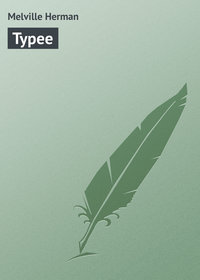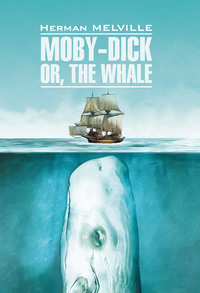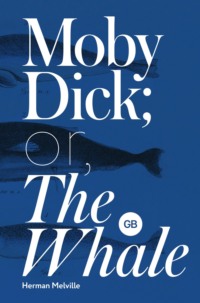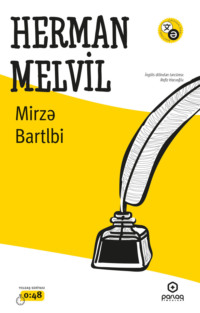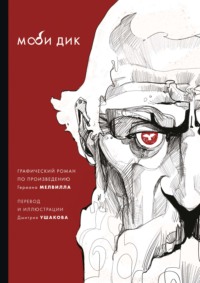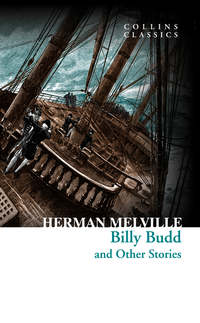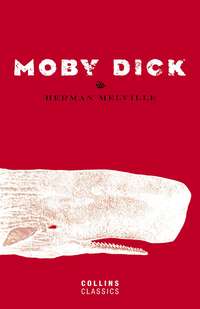 полная версия
полная версияPierre; or The Ambiguities
SHE was not risen yet. So, the strange imperious instantaneousness in him, impelled him to go straight to her chamber-door, and in a voice of mild invincibleness, demand immediate audience, for the matter pressed.
Already namelessly concerned and alarmed for her lover, now eight-and-forty hours absent on some mysterious and undisclosable affair; Lucy, at this surprising summons was overwhelmed with sudden terror; and in oblivion of all ordinary proprieties, responded to Pierre's call, by an immediate assent.
Opening the door, he advanced slowly and deliberately toward her; and as Lucy caught his pale determined figure, she gave a cry of groping misery, which knew not the pang that caused it, and lifted herself trembling in her bed; but without uttering one word.
Pierre sat down on the bedside; and his set eyes met her terrified and virgin aspect.
"Decked in snow-white, and pale of cheek, thou indeed art fitted for the altar; but not that one of which thy fond heart did'st dream: – so fair a victim!"
"Pierre!"
"'Tis the last cruelty of tyrants to make their enemies slay each other."
"My heart! my heart!"
"Nay; – Lucy, I am married."
The girl was no more pale, but white as any leper; the bed-clothes trembled to the concealed shudderings of all her limbs; one moment she sat looking vacantly into the blank eyes of Pierre, and then fell over toward him in a swoon.
Swift madness mounted into the brain of Pierre; all the past seemed as a dream, and all the present an unintelligible horror. He lifted her, and extended her motionless form upon the bed, and stamped for succor. The maid Martha came running into the room, and beholding those two inexplicable figures, shrieked, and turned in terror. But Pierre's repeated cry rallied Martha from this, and darting out of the chamber, she returned with a sharp restorative, which at length brought Lucy back to life.
"Martha! Martha!" now murmured Lucy, in a scarce audible whispering, and shuddering in the maid's own shuddering arms, "quick, quick; come to me – drive it away! wake me! wake me!"
"Nay, pray God to sleep again," cried Martha, bending over her and embracing her, and half-turning upon Pierre with a glance of loathing indignation. "In God's holy name, sir, what may this be? How came you here; accursed!"
"Accursed? – it is well. Is she herself again, Martha?"
"Thou hast somehow murdered her; how then be herself again? My sweet mistress! oh, my young mistress! Tell me! tell me!" and she bent low over her.
Pierre now advanced toward the bed, making a gesture for the maid to leave them; but soon as Lucy re-caught his haggard form, she whisperingly wailed again, "Martha! Martha! drive it away! – there – there! him – him!" and shut her eyes convulsively, with arms abhorrently outstretched.
"Monster! incomprehensible fiend!" cried the anew terror-smitten maid – "depart! See! she dies away at the sight of thee – begone! Wouldst thou murder her afresh? Begone!"
Starched and frozen by his own emotion, Pierre silently turned and quitted the chamber; and heavily descending the stairs, tramped heavily – as a man slowly bearing a great burden – through a long narrow passage leading to a wing in the rear of the cottage, and knocking at Miss Lanyllyn's door, summoned her to Lucy, who, he briefly said, had fainted. Then, without waiting for any response, left the house, and went directly to the mansion.
III"Is my mother up yet?" said he to Dates, whom he met in the hall.
"Not yet, sir; – heavens, sir! are you sick?"
"To death! Let me pass."
Ascending toward his mother's chamber, he heard a coming step, and met her on the great middle landing of the stairs, where in an ample niche, a marble group of the temple-polluting Laocoon and his two innocent children, caught in inextricable snarls of snakes, writhed in eternal torments.
"Mother, go back with me to thy chamber."
She eyed his sudden presence with a dark but repressed foreboding; drew herself up haughtily and repellingly, and with a quivering lip, said, "Pierre, thou thyself hast denied me thy confidence, and thou shall not force me back to it so easily. Speak! what is that now between thee and me?"
"I am married, mother."
"Great God! To whom?"
"Not to Lucy Tartan, mother."
"That thou merely sayest 'tis not Lucy, without saying who indeed it is, this is good proof she is something vile. Does Lucy know thy marriage?"
"I am but just from Lucy's."
Thus far Mrs. Glendinning's rigidity had been slowly relaxing. Now she clutched the balluster, bent over, and trembled, for a moment. Then erected all her haughtiness again, and stood before Pierre in incurious, unappeasable grief and scorn for him.
"My dark soul prophesied something dark. If already thou hast not found other lodgment, and other table than this house supplies, then seek it straight. Beneath my roof, and at my table, he who was once Pierre Glendinning no more puts himself."
She turned from him, and with a tottering step climbed the winding stairs, and disappeared from him; while in the balluster he held, Pierre seemed to feel the sudden thrill running down to him from his mother's convulsive grasp.
He stared about him with an idiot eye; staggered to the floor below, to dumbly quit the house; but as he crossed its threshold, his foot tripped upon its raised ledge; he pitched forward upon the stone portico, and fell. He seemed as jeeringly hurled from beneath his own ancestral roof.
IVPASSING through the broad court-yard's postern, Pierre closed it after him, and then turned and leaned upon it, his eyes fixed upon the great central chimney of the mansion, from which a light blue smoke was wreathing gently into the morning air.
"The hearth-stone from which thou risest, never more, I inly feel, will these feet press. Oh God, what callest thou that which has thus made Pierre a vagabond?"
He walked slowly away, and passing the windows of Lucy, looked up, and saw the white curtains closely drawn, the white-cottage profoundly still, and a white saddle-horse tied before the gate.
"I would enter, but again would her abhorrent wails repel; what more can I now say or do to her? I can not explain. She knows all I purposed to disclose. Ay, but thou didst cruelly burst upon her with it; thy impetuousness, thy instantaneousness hath killed her, Pierre! – Nay, nay, nay! – Cruel tidings who can gently break? If to stab be inevitable; then instant be the dagger! Those curtains are close drawn upon her; so let me upon her sweet image draw the curtains of my soul. Sleep, sleep, sleep, sleep, thou angel! – wake no more to Pierre, nor to thyself, my Lucy!"
Passing on now hurriedly and blindly, he jostled against some oppositely-going wayfarer. The man paused amazed; and looking up, Pierre recognized a domestic of the Mansion. That instantaneousness which now impelled him in all his actions, again seized the ascendency in him. Ignoring the dismayed expression of the man at thus encountering his young master, Pierre commanded him to follow him. Going straight to the "Black Swan," the little village Inn, he entered the first vacant room, and bidding the man be seated, sought the keeper of the house, and ordered pen and paper.
If fit opportunity offer in the hour of unusual affliction, minds of a certain temperament find a strange, hysterical relief, in a wild, perverse humorousness, the more alluring from its entire unsuitableness to the occasion; although they seldom manifest this trait toward those individuals more immediately involved in the cause or the effect of their suffering. The cool censoriousness of the mere philosopher would denominate such conduct as nothing short of temporary madness; and perhaps it is, since, in the inexorable and inhuman eye of mere undiluted reason, all grief, whether on our own account, or that of others, is the sheerest unreason and insanity.
The note now written was the following:
"For that Fine Old Fellow, Dates"Dates, my old boy, bestir thyself now. Go to my room, Dates, and bring me down my mahogany strong-box and lock-up, the thing covered with blue chintz; strap it very carefully, my sweet Dates, it is rather heavy, and set it just without the postern. Then back and bring me down my writing-desk, and set that, too, just without the postern. Then back yet again, and bring me down the old camp-bed (see that all the parts be there), and bind the case well with a cord. Then go to the left corner little drawer in my wardrobe, and thou wilt find my visiting-cards. Tack one on the chest, and the desk, and the camp-bed case. Then get all my clothes together, and pack them in trunks (not forgetting the two old military cloaks, my boy), and tack cards on them also, my good Dates. Then fly round three times indefinitely, my good Dates, and wipe a little of the perspiration off. And then – let me see – then, my good Dates – why what then? Why, this much. Pick up all papers of all sorts that may be lying round my chamber, and see them burned. And then – have old White Hoof put to the lightest farm-wagon, and send the chest, and the desk, and the camp-bed, and the trunks to the 'Black Swan,' where I shall call for them, when I am ready, and not before, sweet Dates. So God bless thee, my fine, old, imperturbable Dates, and adieu!
"Thy old young master, PIERRE"Nota bene– Mark well, though, Dates. Should my mother possibly interrupt thee, say that it is my orders, and mention what it is I send for; but on no account show this to thy mistress – D'ye hear? PIERRE again."
Folding this scrawl into a grotesque shape, Pierre ordered the man to take it forthwith to Dates. But the man, all perplexed, hesitated, turning the billet over in his hand; till Pierre loudly and violently bade him begone; but as the man was then rapidly departing in a panic, Pierre called him back and retracted his rude words; but as the servant now lingered again, perhaps thinking to avail himself of this repentant mood in Pierre, to say something in sympathy or remonstrance to him, Pierre ordered him off with augmented violence, and stamped for him to begone.
Apprising the equally perplexed old landlord that certain things would in the course of that forenoon be left for him, (Pierre,) at the Inn; and also desiring him to prepare a chamber for himself and wife that night; some chamber with a commodious connecting room, which might answer for a dressing-room; and likewise still another chamber for a servant; Pierre departed the place, leaving the old landlord staring vacantly at him, and dumbly marveling what horrible thing had happened to turn the brain of his fine young favorite and old shooting comrade, Master Pierre.
Soon the short old man went out bare-headed upon the low porch of the Inn, descended its one step, and crossed over to the middle of the road, gazing after Pierre. And only as Pierre turned up a distant lane, did his amazement and his solicitude find utterance.
"I taught him – yes, old Casks; – the best shot in all the country round is Master Pierre; – pray God he hits not now the bull's eye in himself. – Married? married? and coming here? – This is pesky strange!"
BOOK XII.
ISABEL: MRS. GLENDINNING: THE PORTRAIT: AND LUCY
IWHEN on the previous night Pierre had left the farm-house where Isabel harbored, it will be remembered that no hour, either of night or day, no special time at all had been assigned for a succeeding interview. It was Isabel, who for some doubtlessly sufficient reason of her own, had, for the first meeting, assigned the early hour of darkness.
As now, when the full sun was well up the heavens, Pierre drew near the farm-house of the Ulvers, he descried Isabel, standing without the little dairy-wing, occupied in vertically arranging numerous glittering shield-like milk-pans on a long shelf, where they might purifyingly meet the sun. Her back was toward him. As Pierre passed through the open wicket and crossed the short soft green sward, he unconsciously muffled his footsteps, and now standing close behind his sister, touched her shoulder and stood still.
She started, trembled, turned upon him swiftly, made a low, strange cry, and then gazed rivetedly and imploringly upon him.
"I look rather queerish, sweet Isabel, do I not?" said Pierre at last with a writhed and painful smile.
"My brother, my blessed brother! – speak – tell me – what has happened – what hast thou done? Oh! Oh! I should have warned thee before, Pierre, Pierre; it is my fault – mine, mine!"
"What is thy fault, sweet Isabel?"
"Thou hast revealed Isabel to thy mother, Pierre."
"I have not, Isabel. Mrs. Glendinning knows not thy secret at all."
"Mrs. Glendinning? – that's, – that's thine own mother, Pierre! In heaven's name, my brother, explain thyself. Knows not my secret, and yet thou here so suddenly, and with such a fatal aspect? Come, come with me into the house. Quick, Pierre, why dost thou not stir? Oh, my God! if mad myself sometimes, I am to make mad him who loves me best, and who, I fear, has in some way ruined himself for me; – then, let me no more stand upright on this sod, but fall prone beneath it, that I may be hidden! Tell me!" catching Pierre's arms in both her frantic hands – "tell me, do I blast where I look? is my face Gorgon's?"
"Nay, sweet Isabel; but it hath a more sovereign power; that turned to stone; thine might turn white marble into mother's milk."
"Come with me – come quickly."
They passed into the dairy, and sat down on a bench by the honey-suckled casement.
"Pierre, forever fatal and accursed be the day my longing heart called thee to me, if now, in the very spring-time of our related love, thou art minded to play deceivingly with me, even though thou should'st fancy it for my good. Speak to me; oh speak to me, my brother!"
"Thou hintest of deceiving one for one's good. Now supposing, sweet Isabel, that in no case would I affirmatively deceive thee; – in no case whatever; – would'st thou then be willing for thee and me to piously deceive others, for both their and our united good? – Thou sayest nothing. Now, then, is it my turn, sweet Isabel, to bid thee speak to me, oh speak to me!"
"That unknown, approaching thing, seemeth ever ill, my brother, which must have unfrank heralds to go before. Oh, Pierre, dear, dear Pierre; be very careful with me! This strange, mysterious, unexampled love between us, makes me all plastic in thy hand. Be very careful with me. I know little out of me. The world seems all one unknown India to me. Look up, look on me, Pierre; say now, thou wilt be very careful; say so, say so, Pierre!"
"If the most exquisite, and fragile filagree of Genoa be carefully handled by its artisan; if sacred nature carefully folds, and warms, and by inconceivable attentivenesses eggs round and round her minute and marvelous embryoes; then, Isabel, do I most carefully and most tenderly egg thee, gentlest one, and the fate of thee! Short of the great God, Isabel, there lives none who will be more careful with thee, more infinitely considerate and delicate with thee."
"From my deepest heart, do I believe thee, Pierre. Yet thou mayest be very delicate in some point, where delicateness is not all essential, and in some quick impulsive hour, omit thy fullest heedfulness somewhere where heedlessness were most fatal. Nay, nay, my brother; bleach these locks snow-white, thou sun! if I have any thought to reproach thee, Pierre, or betray distrust of thee. But earnestness must sometimes seem suspicious, else it is none. Pierre, Pierre, all thy aspect speaks eloquently of some already executed resolution, born in suddenness. Since I last saw thee, Pierre, some deed irrevocable has been done by thee. My soul is stiff and starched to it; now tell me what it is?"
"Thou, and I, and Delly Ulver, to-morrow morning depart this whole neighborhood, and go to the distant city. – That is it."
"No more?"
"Is it not enough?"
"There is something more, Pierre."
"Thou hast not yet answered a question I put to thee but just now. Bethink thee, Isabel. The deceiving of others by thee and me, in a thing wholly pertaining to ourselves, for their and our united good. Wouldst thou?"
"I would do any thing that does not tend to the marring of thy best lasting fortunes, Pierre. What is it thou wouldst have thee and me to do together? I wait; I wait!"
"Let us go into the room of the double casement, my sister," said Pierre, rising.
"Nay, then; if it can not be said here, then can I not do it anywhere, my brother; for it would harm thee."
"Girl!" cried Pierre, sternly, "if for thee I have lost" – but he checked himself.
"Lost? for me? Now does the very worst blacken on me. Pierre! Pierre!"
"I was foolish, and sought but to frighten thee, my sister. It was very foolish. Do thou now go on with thine innocent work here, and I will come again a few hours hence. Let me go now."
He was turning from her, when Isabel sprang forward to him, caught him with both her arms round him, and held him so convulsively, that her hair sideways swept over him, and half concealed him.
"Pierre, if indeed my soul hath cast on thee the same black shadow that my hair now flings on thee; if thou hast lost aught for me; then eternally is Isabel lost to Isabel, and Isabel will not outlive this night. If I am indeed an accursing thing, I will not act the given part, but cheat the air, and die from it. See; I let thee go, lest some poison I know not of distill upon thee from me."
She slowly drooped, and trembled from him. But Pierre caught her, and supported her.
"Foolish, foolish one! Behold, in the very bodily act of loosing hold of me, thou dost reel and fall; – unanswerable emblem of the indispensable heart-stay, I am to thee, my sweet, sweet Isabel! Prate not then of parting."
"What hast thou lost for me? Tell me!"
"A gainful loss, my sister!"
"'Tis mere rhetoric! What hast thou lost?"
"Nothing that my inmost heart would now recall. I have bought inner love and glory by a price, which, large or small, I would not now have paid me back, so I must return the thing I bought."
"Is love then cold, and glory white? Thy cheek is snowy, Pierre."
"It should be, for I believe to God that I am pure, let the world think how it may."
"What hast thou lost?"
"Not thee, nor the pride and glory of ever loving thee, and being a continual brother to thee, my best sister. Nay, why dost thou now turn thy face from me?"
"With fine words he wheedles me, and coaxes me, not to know some secret thing. Go, go, Pierre, come to me when thou wilt. I am steeled now to the worst, and to the last. Again I tell thee, I will do any thing – yes, any thing that Pierre commands – for, though outer ill do lower upon us, still, deep within, thou wilt be careful, very careful with me, Pierre?"
"Thou art made of that fine, unshared stuff of which God makes his seraphim. But thy divine devotedness to me, is met by mine to thee. Well mayest thou trust me, Isabel; and whatever strangest thing I may yet propose to thee, thy confidence, – will it not bear me out? Surely thou will not hesitate to plunge, when I plunge first; – already have I plunged! now thou canst not stay upon the bank. Hearken, hearken to me. – I seek not now to gain thy prior assent to a thing as yet undone; but I call to thee now, Isabel, from the depth of a foregone act, to ratify it, backward, by thy consent. Look not so hard upon me. Listen. I will tell all. Isabel, though thou art all fearfulness to injure any living thing, least of all, thy brother; still thy true heart foreknoweth not the myriad alliances and criss-crossings among mankind, the infinite entanglements of all social things, which forbids that one thread should fly the general fabric, on some new line of duty, without tearing itself and tearing others. Listen. All that has happened up to this moment, and all that may be yet to happen, some sudden inspiration now assures me, inevitably proceeded from the first hour I saw thee. Not possibly could it, or can it, be otherwise. Therefore feel I, that I have some patience. Listen. Whatever outer things might possibly be mine; whatever seeming brightest blessings; yet now to live uncomforting and unloving to thee, Isabel; now to dwell domestically away from thee; so that only by stealth, and base connivances of the night, I could come to thee as thy related brother; this would be, and is, unutterably impossible. In my bosom a secret adder of self-reproach and self-infamy would never leave off its sting. Listen. But without gratuitous dishonor to a memory which – for right cause or wrong – is ever sacred and inviolate to me, I can not be an open brother to thee, Isabel. But thou wantest not the openness; for thou dost not pine for empty nominalness, but for vital realness; what thou wantest, is not the occasional openness of my brotherly love; but its continual domestic confidence. Do I not speak thine own hidden heart to thee? say, Isabel? Well, then, still listen to me. One only way presents to this; a most strange way, Isabel; to the world, that never throbbed for thee in love, a most deceitful way; but to all a harmless way; so harmless in its essence, Isabel, that, seems to me, Pierre hath consulted heaven itself upon it, and heaven itself did not say Nay. Still, listen to me; mark me. As thou knowest that thou wouldst now droop and die without me; so would I without thee. We are equal there; mark that, too, Isabel. I do not stoop to thee, nor thou to me; but we both reach up alike to a glorious ideal! Now the continualness, the secretness, yet the always present domesticness of our love; how may we best compass that, without jeopardizing the ever-sacred memory I hinted of? One way – one way – only one! A strange way, but most pure. Listen. Brace thyself: here, let me hold thee now; and then whisper it to thee, Isabel. Come, I holding thee, thou canst not fall."
He held her tremblingly; she bent over toward him; his mouth wet her ear; he whispered it.
The girl moved not; was done with all her tremblings; leaned closer to him, with an inexpressible strangeness of an intense love, new and inexplicable. Over the face of Pierre there shot a terrible self-revelation; he imprinted repeated burning kisses upon her; pressed hard her hand; would not let go her sweet and awful passiveness.
Then they changed; they coiled together, and entangledly stood mute.
IIMRS. Glendinning walked her chamber; her dress loosened.
"That such accursed vileness should proceed from me! Now will the tongued world say – See the vile boy of Mary Glendinning! – Deceitful! thick with guilt, where I thought it was all guilelessness and gentlest docility to me. It has not happened! It is not day! Were this thing so, I should go mad, and be shut up, and not walk here where every door is open to me. – My own only son married to an unknown – thing! My own only son, false to his holiest plighted public vow – and the wide world knowing to it! He bears my name – Glendinning. I will disown it; were it like this dress, I would tear my name off from me, and burn it till it shriveled to a crisp! – Pierre! Pierre! come back, come back, and swear it is not so! It can not be! Wait: I will ring the bell, and see if it be so."
She rung the bell with violence, and soon heard a responsive knock.
"Come in! – Nay, falter not;" (throwing a shawl over her) "come in. Stand there and tell me if thou darest, that my son was in this house this morning and met me on the stairs. Darest thou say that?"
Dates looked confounded at her most unwonted aspect.
"Say it! find thy tongue! Or I will root mine out and fling it at thee! Say it!"
"My dear mistress!"
"I am not thy mistress! but thou my master; for, if thou sayest it, thou commandest me to madness. – Oh, vile boy! – Begone from me!"
She locked the door upon him, and swiftly and distractedly walked her chamber. She paused, and tossing down the curtains, shut out the sun from the two windows.
Another, but an unsummoned knock, was at the door. She opened it.
"My mistress, his Reverence is below. I would not call you, but he insisted."
"Let him come up."
"Here? Immediately?"
"Didst thou hear me? Let Mr. Falsgrave come up."
As if suddenly and admonishingly made aware, by Dates, of the ungovernable mood of Mrs. Glendinning, the clergyman entered the open door of her chamber with a most deprecating but honest reluctance, and apprehensiveness of he knew not what.


